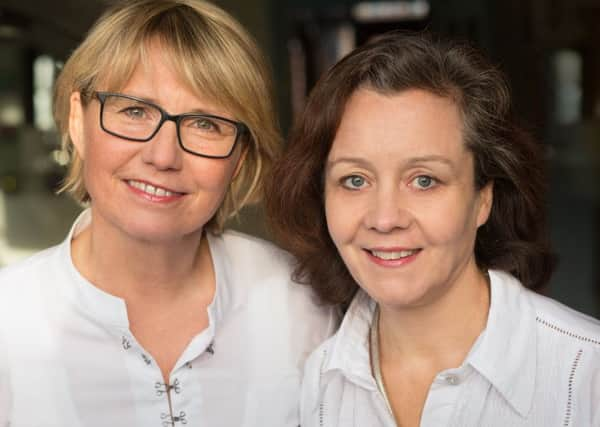Venture puts prisoners in tune with work


Heather Phillips, who was born and raised in Yorkshire, launched Beating Time, a charity initiative helping prisoners develop soft skills, over three years ago.
Ms Phillips, who has a passion for choir singing from her childhood, told The Yorkshire Post that although some businesses are receptive to giving ex-offenders a second chance there are still too many who overlook people with criminal convictions because they are “very risk averse”.
Advertisement
Hide AdAdvertisement
Hide AdShe added: “As a society we are much more punitive. If you look over the last 20 years we’ve created many more criminal offences. We sentence many more people to prison.
“We’ve doubled the prison population in the last 20 years. In 1995 there were 40,000 people in prison, it’s now 85,000. When we sentence people to prison we sentence them for much, much longer.”
Ms Phillips moved down to London in her early 20s and became a partner at a city law firm. She dealt with mergers and acquisitions and IPOs on the stock exchange.
But in 2010 she set up a small company called Singing Works.
Advertisement
Hide AdAdvertisement
Hide Ad“Mainly because I was a director and investor in a call centre,” she said. “We did lots and lots of staff engagement because it’s a very stressful job, a lot of churn and one of the things that I’ve always done is sing in choirs.”
Three years ago, after seeing it work so well in the corporate world, Ms Phillips thought she could apply the same activity to bring people together in prisons.
She and Jane Evans, fellow co-founder of Beating Time, piloted the scheme at HMP Durham.
Ms Phillips said: “It was quite surprising actually for people who were quite damaged and inarticulate. You could see a lot of pent up aggression and frustration but they were remarkably generous with each other.”
Advertisement
Hide AdAdvertisement
Hide AdThe duo used that as a springboard to extend the initiative to four other prisons. Beating Time is now headed for four more prisons.
“What we’ve found is that group singing has a much greater impact in prisons than it could ever have in a corporate setting,” says the former corporate lawyer.
Ms Phillips says that there are “huge mental health issues in prisons” and that singing helps people’s body produce endorphins, dopamine and oxytocin, a powerful combination of chemicals that “make you feel good”.
She added: “This whole issue of identifying yourself as somebody that isn’t wanted, doesn’t belong, isn’t part of society is huge. When you’re part of the choir you absolutely belong.”
Advertisement
Hide AdAdvertisement
Hide AdA third part of Beating Time’s agenda is employability skills. Ms Phillips says that businesses that do employ ex-offenders find that it’s easier to teach them industry specific skills compared to soft skills.
“What is harder is teaching them the softer skills so commitment, turning up on time, playing as part of a team, concentrating, focusing, having a work ethic,” said Ms Phillips. “All of that you actually do in a choir. We don’t wait for everybody else to open their mouths and sing, we all have to commit to singing at the same time.”
Beating Time is also looking at connecting employers with prisoners.